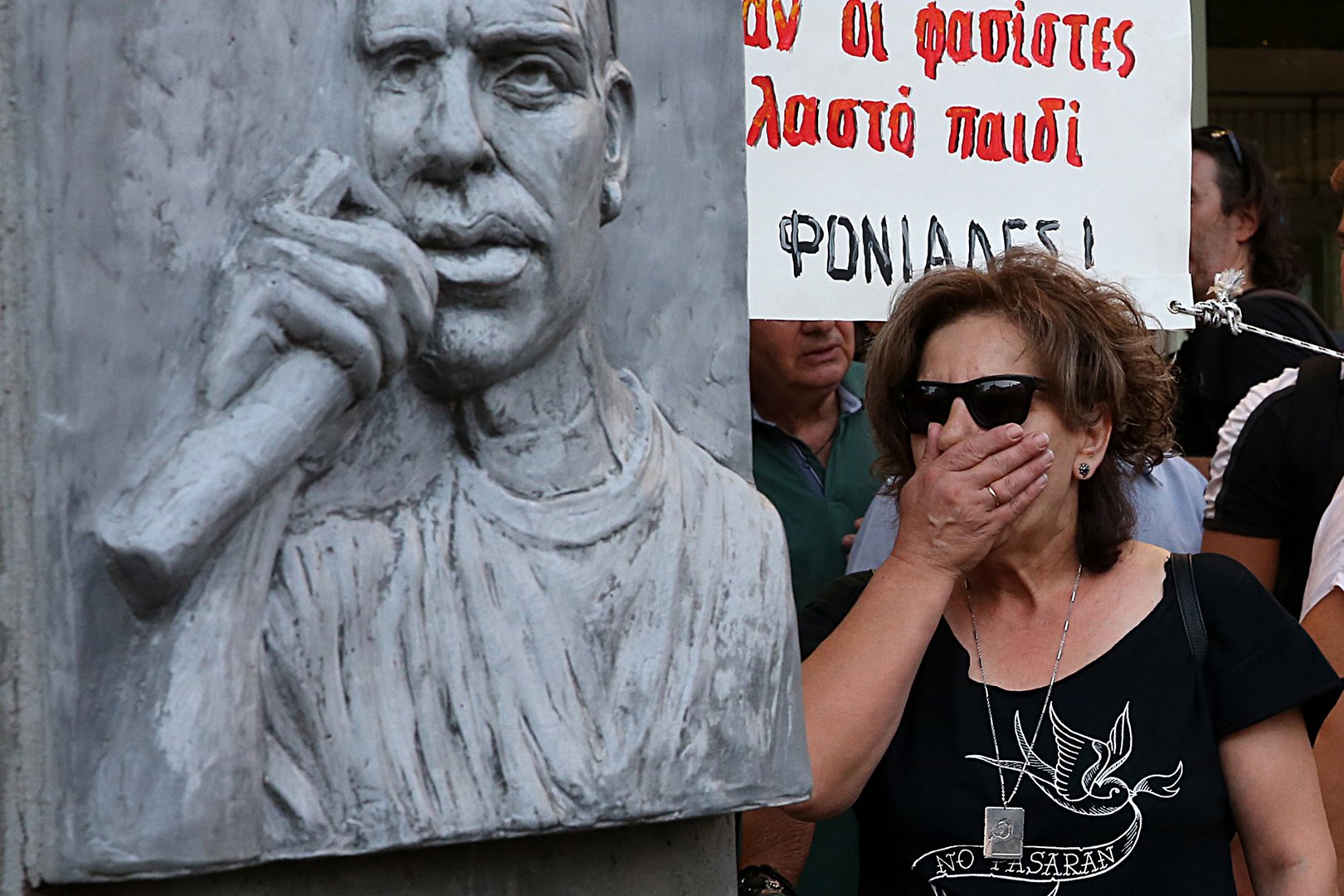The linkage is grounded in a fear of communism, but why does it still persist?
The Church of Cyprus and the Pancyprian Union of Greek Theologians are demanding that CyBC scraps its choice of song, El Diablo, to represent Cyprus at this year’s Eurovision song contest. The matter caused amusement in foreign media like CNN and The Guardian that featured light-hearted reports about this bizarre story (for Europeans), regarding the outcry by the church, theologians and neo-Nazis against El Diablo.
The protest underlines, yet again, the informal alliance of the Orthodox Church and the far right, a relationship that has very adverse effects on democracy, society and the economy. Of course, the same applies to Greece, where there are similar occurrences from time to time. Many will remember with terror and disgust seeing furious theologians and neo-Nazis protesting in Athens in 2012 against a play about gays, Corpus Christi, because they had deemed it blasphemous. They even managed to storm the theatre where the play was being staged, wrecking the place and forcing the performance to be cancelled.
The question that arises is why the Orthodox Church has identified so arbitrarily with the far right and fascism? After the Russian revolution, the Church of Greece feared its existence was being threatened. It was afraid that communism could be imposed on Greece as well, which was why between the two world wars it turned against communist, socialist and leftist views and ideas. During this period, the church became much more important to right-wing governments as a mechanism against communism to reinforce the establish ideology of Greco-Christianity. This ideology combined ancient Greece, the Byzantine Empire and modern Greece, supporting the premise that the Greek nation was unique, blessed by God. This nation was marked by historic, cultural and biological continuity while contending that the true Greek had to be Orthodox, implying that religion and nation were inseparable and that the two made up the real Greek identity.
The spread of communist and socialist ideas in Greek society sparked the reaction of the Ioannis Metaxas regime and the church. Metaxas banged on that Greece faced a clear communist threat and passed a law that declared communism a ‘national enemy’ and stipulated that all communists had to be isolated. This phobia was transmitted by the Church of Greece to the Ethnarchy of Cyprus which stopped all contact with Akel, which in effect was the only political party.
Consequently, the Greek church’s warm support for the fascist dictatorships of 1936 and 1967 was understandable. What is much more difficult and infuriating to understand is the support of Golden Dawn by many bishops, even after the murder of anti-fascist activist Pavlos Fyssas in 2013. For example, Anthimos of Thessaloniki and Nikolaos of Fthiotida welcomed the leader of Golden Dawn openly and with unconcealed joy at their offices in 2017 and 2018 respectively. In other words, there are top clerics who identify with the murderers. Cyprus has witnessed similarly freakish events although Elam has had no involvement in crime. The archbishop, after a meeting with top people of Elam, described them as ‘good people’ while the former minister of education Costas Hambiaouris visited the Elam offices in 2018 and stressed that “the values and principles of Elam are also our own”.
Religious fanaticism and the alignment of religion and far right parties could be markedly diminished with the introduction of secular schools which would mean the replacement of religious instruction lessons with religious studies, that is the study of religion from a secular point of view not only by us but also the Turkish Cypriots. The teaching of this lesson would allow students to understand religion from the outside, not as the faithful, but from its historical, sociological, anthropological vantage point. In short it would be a lesson based on the knowledge of religions with a particular presentation of the cultural role of Orthodoxy in Greece and Cyprus. Religious studies would be taught by sociologists. The theologians’ place is at catechism schools not at secular schools.
Below are the benefits:
POLITICAL: Both Islam and Orthodoxy which are taught in Cyprus schools are religions that are generally speaking intolerant and racist as they claim to hold the one and only truth, while the rest are considered heretics or infidels and outcasts. The teaching of religion, as it takes place both in the occupied and free areas cultivates the opposite of the desired result, that is the vilifying of diversity, disregard for the other view and intolerance all of which renders rapprochement more difficult.
ECONOMIC: The principle “believe unquestioningly” leads the brain to inactivity and blunts the intellectual capabilities of a person. As a consequence this reduces productivity and the standard of living.
SOCIAL: In a society in which citizens are free-thinking, without blinkers, the arts, the sciences, customs and traditions would be able to develop and lead to a better society – at least they would not be subjected to intra-social clashes and the undermining of each other, thus offering the ideological bases for future progress.
George Koumoullis is an economist and social scientist







Click here to change your cookie preferences